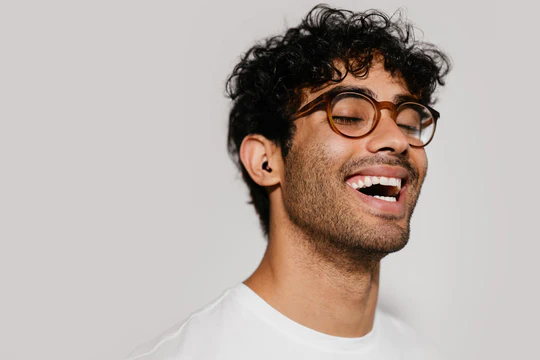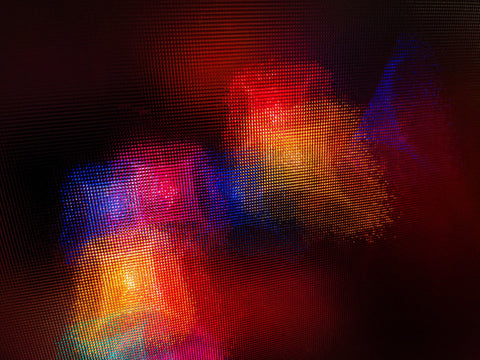Key takeaways
- Some earbuds offer noise-canceling properties – so does that mean they can be used as effective hearing protection?
- Wirecutter put it to the test with research into the top earbuds and earplugs, to see which offered better hearing protection against loud music at concerts, festivals and nightclubs
- Both earbuds and earplugs offer protection – but earplugs have the edge
Do earbuds work as hearing protection? If you always have your earbuds in your purse or pocket when you’re out and about, you might be wondering if you really need to bother with a pair of earplugs too… Well, Wirecutter put it to the test with some in-depth research. So, let’s dive right in!

What was the study?
Lots of earbuds are built with noise-canceling capabilities, and most have a hear-through mode. This mode is called different things by different manufacturers, but they all do the same thing: limit volume levels to minimize the intensity of loud noises.
But does this mean that they’re safe to use as hearing protection at loud events like nightclubs, festivals and concerts?
That’s what Wirecutter wanted to find out.
They conducted tests to determine whether earbuds really do what they say on the tin, and protect your hearing. They tested three of the most popular noise-canceling earbuds as well as a selection of earplugs, to see which fared better when pitted against loud music.
They did this by using the GRAS RA0402 ear simulator, a device that measures exactly how much sound filtered through the earbuds or earplugs. This device was placed between two PA speakers, which were roughly three feet apart.
Then, they played a six-second clip of hip-hop music. The music was played in a five-minute loop at 105 decibels, which is slightly louder than the level you’d hear at a rock concert (usually about 104 decibels).
While the music was playing, the Wirecutter team measured the sound level from the RA0402’s internal microphone, to get an accurate picture of how much sound was getting through to the ear, when wearing either earbuds or earplugs. For this, they used A-weighting. This eliminates bass and other low sound frequencies, and focuses only on higher sound frequencies that are more likely to cause hearing damage.
To get a more accurate result, they measured the different earbuds in three different ways, to reflect how people might use them for hearing protection in a real-life situation:
- They measured the sound levels that were blocked when simply wearing the earbuds, without any additional features turned on
- They measured the difference when the earbuds were using hear-through mode
- They measured the sound levels when the earbuds’ noise canceling feature was turned on
What did they find?
When in hear-through mode, the results weren’t quite as good as advertised by earbud manufacturers. All three earbuds tested did reduce noise levels from 105 decibels, 95 dB, 91 dB and 102 dB respectively.
Hearing damage is possible after two hours of exposure to sounds of 91 decibels without hearing protection. While it’s great that the earbuds tested do offer some noise reduction, it does mean that you run the risk of hearing damage if you’re relying on earbuds as hearing protection during live events like concerts.
But because these simulations don’t tell the full story of what happens in real life, the testers also took the earbuds and earplugs to a concert.
The testers took two sets of earbuds and Loop earplugs to a concert, where the sound levels reached 105 decibels. As they watched the show, they switched between the earplugs and earbuds, and switched between the noise-canceling and hear-through modes on the earbuds.
They found that the hear-through mode gave the best experience when it came to enjoying the concert, as it simply gave the full experience – but quieter. As they described it, “the guitars, drums and vocals all sounded surprisingly clear, and our enjoyment of the sound wasn’t lessened at all.”
While the music sounded great, the hearing protection offered by the earbuds still wasn’t enough: tests showed that the noise levels were unfortunately still too loud with the earbuds in.
When the testers switched to the earbuds’ noise-canceling mode, they found that it made the sound incredibly quiet, meaning the concert experience was diminished.
What makes earplugs different?
Earplugs like Loop Experience are specifically designed for events, helping you to enjoy the full experience while protecting your ears from the loud volumes.
They don’t block sounds completely, so you don’t get that muffled effect that you sometimes get with foam earplugs. Instead, they’re designed to filter sounds so that the sound quality is as good as ever – just at a reduced volume. Loop Experience offers up to 18 dB of noise reduction, with the option to add an extra 5 dB of protection with the Loop Mute accessory. So you can enjoy the concert safe in the knowledge that your hearing is at less risk of damage.
Loop Earplugs
Loop Experience 2
Earbuds vs earplugs for hearing protection: the verdict
Earbuds are small, convenient and offer great sound quality, meaning they’re perfect for listening to music on the go. But when it comes to hearing protection, it’s better to stick with earplugs that are specially designed to protect your hearing from the loud sound levels at concerts and other events.
When it comes to your hearing, it’s just not worth running the risk of damaging it. So, next time you go to a concert, pop your Loop Earplugs in, protect your ears, then enjoy the full concert experience!

What To Look For In Noise Reduction Earplugs
Unlock expert tips for choosing the perfect noise-reduction earplugs! Discover key features to consider when choosing...

Your questions answered by Dr. Kathleen Wallace
You've sent us all of your questions on hearing and noise sensitivity.We've bundled them all in an interview with Dr....

How To Deal With Sensory Overload
If you're struggling to cope with sensory overload, read our guide for some expert tips and strategies.

















